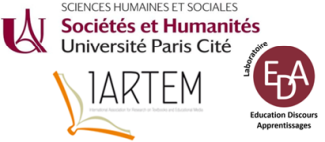The knowledge, attitudes, skills and behaviours acquired in early years have a significant impact on the development of an individual's sustainable lifestyle (UNESCO, 2020). The teachers have an important role in this process, as they provide pupils with vital experiences and shape their attitudes and behaviour. Because the field of sustainable living contains challenging topics and complicated terminology, teachers may feel insecure when dealing with them. Previous study has shown that teachers are not sufficiently prepared to teach topics of climate change (Spiteri, 2002) and therefore tend to avoid teaching these topics and discuss climate issues in preschool. There is also a lack of educational materials that would support teachers in handling these topics. With the aim to find out how Estonian pre-school teachers evaluate the educational materials that can be used to develop the pupils' climate awareness and based on which principles they select suitable educational materials, 56 pre-school teachers were questioned. Two research questions were stated: 1) To what extent do preschool teachers evaluate the educational materials to develop their pupils' climate awareness?; 2) What principles do pre-school teachers follow and what goals do they consider important for selection of climate awareness educational materials? Descriptive statistics and qualitative thematic analysis were used to analyse the teachers' answers. According to the teachers' open answers, there is a lack of suitable educational materials for pre-school or the existing materials do not obviously support teachers in teaching the topics of climate change. The teachers' expectations for educational materials of climate awareness concern various aspects, including content, appearance, the pupils' motivation and support for the child's cognitive and social development. In selecting learning materials, teachers mainly consider the content of the educational materials and the complexity of the text. It is essential for the teacher that the educational materials are age-appropriate, understandable and logical for the pupils. Previous studies have emphasised the importance of diversity of learning materials, easy differentiation of teaching (Reints & Wilkens, 2019), and individual approach (Czeglédy & Kovács, 2008). These principles were also mentioned in this research. The results of the study can be taken into consideration to develop educational materials that increase teachers' confidence in adapting existing materials and help to better teach climate awareness topics to pupils in an age-appropriate way.
References
Czeglédy, I., & Kovács, A. (2008). How to Choose a Textbook on Mathematics? Acta Didactica Napocensia, 1(2), 16–30.
Reints, A. J., & Wilkens, H. J. (2019). How teachers select textbooks and educational media. IARTEM 1991-2016: 25 years developing textbook and educational media research, 99.
Spiteri, J. (2022). Early Childhood Teachers' Perceptions of Environmental Sustainability: A Phenomenographic Investigation. Australian Journal of Teacher Education, 47(5). http://dx.doi.org/10.14221/ajte.2022v47n5.4
UNESCO (2020). Education for sustainable development: A roadmap. Paris: UNESCO. https://www.gcedclearinghouse.org/sites/default/files/resources/200782eng.pdf

 PDF version
PDF version
